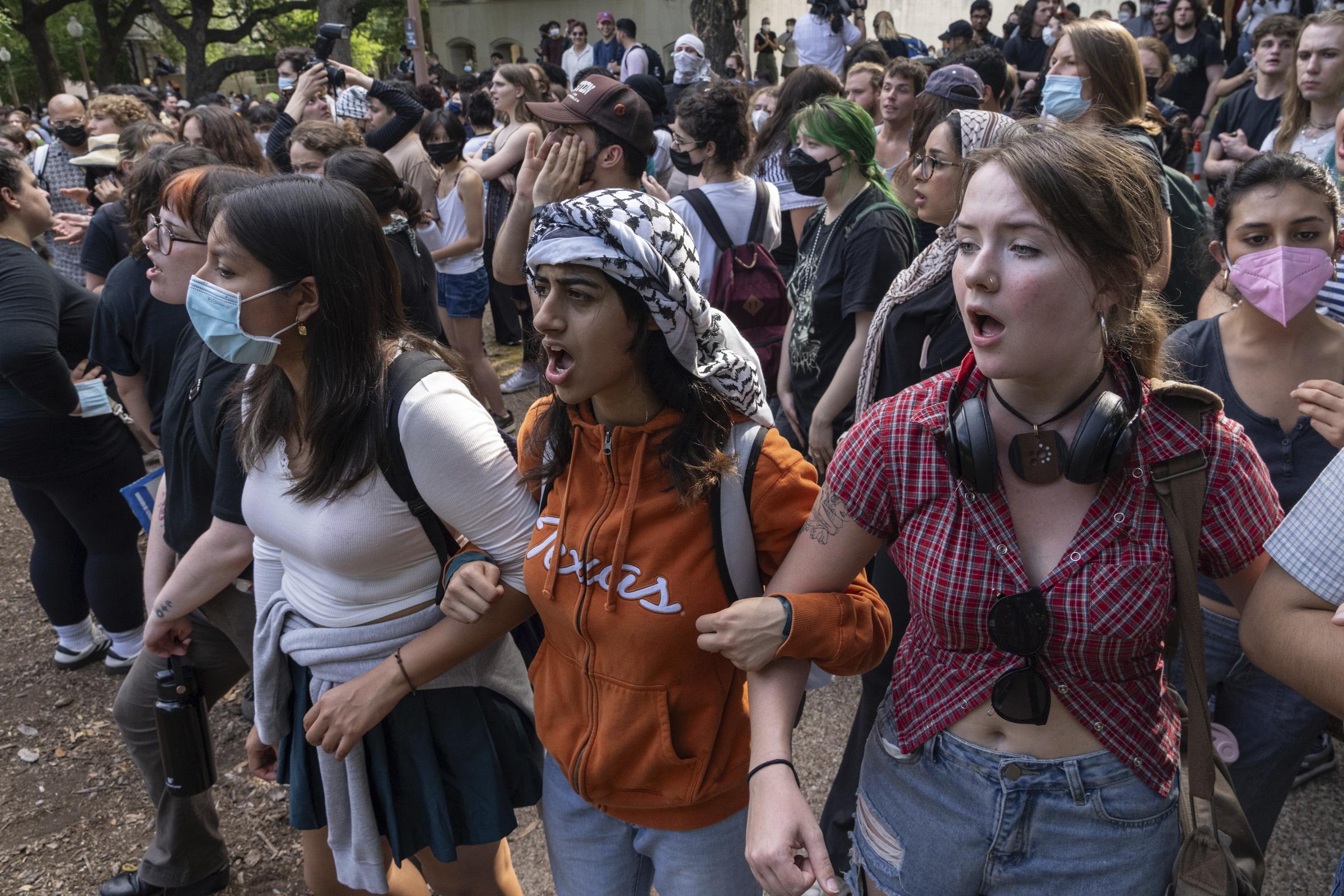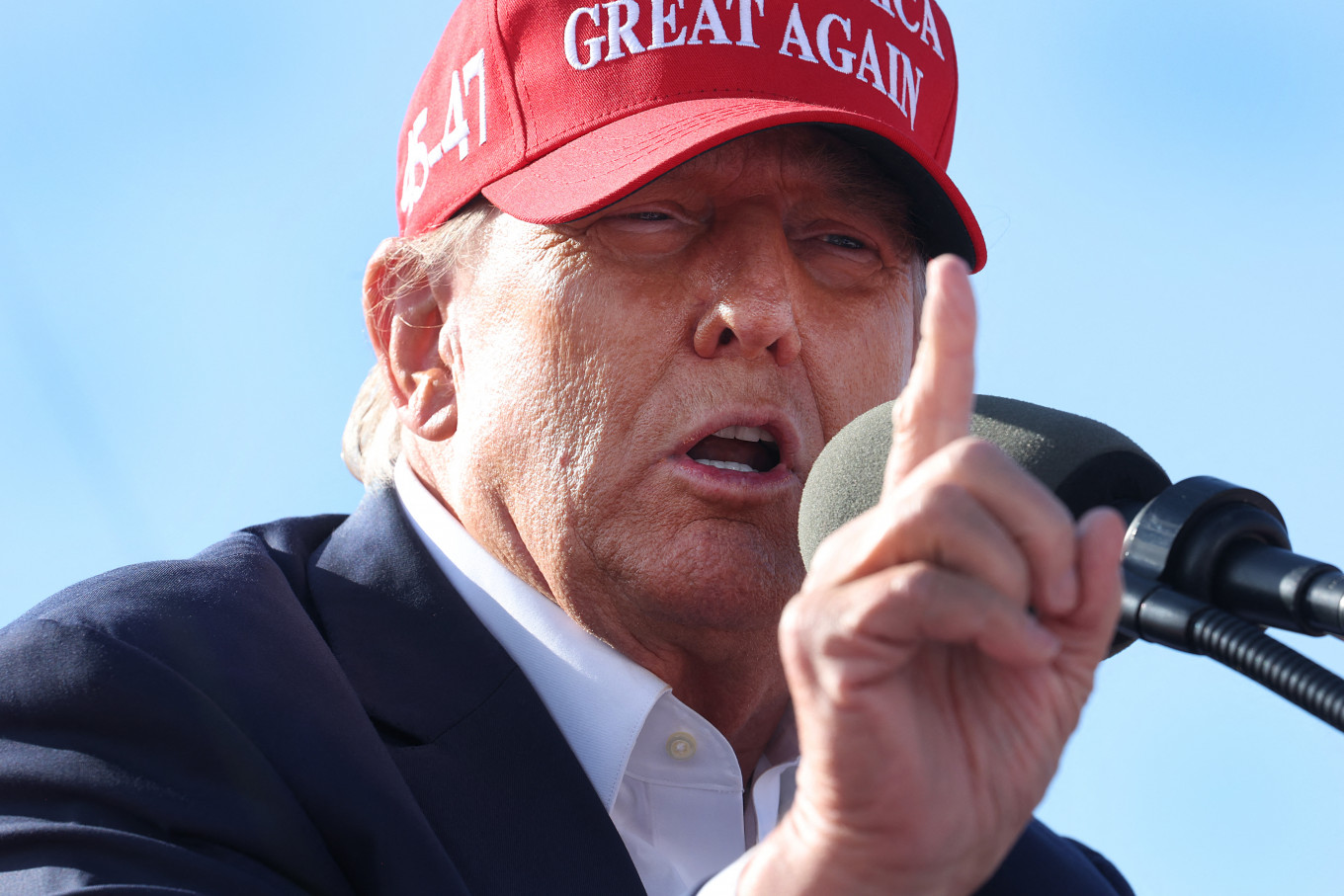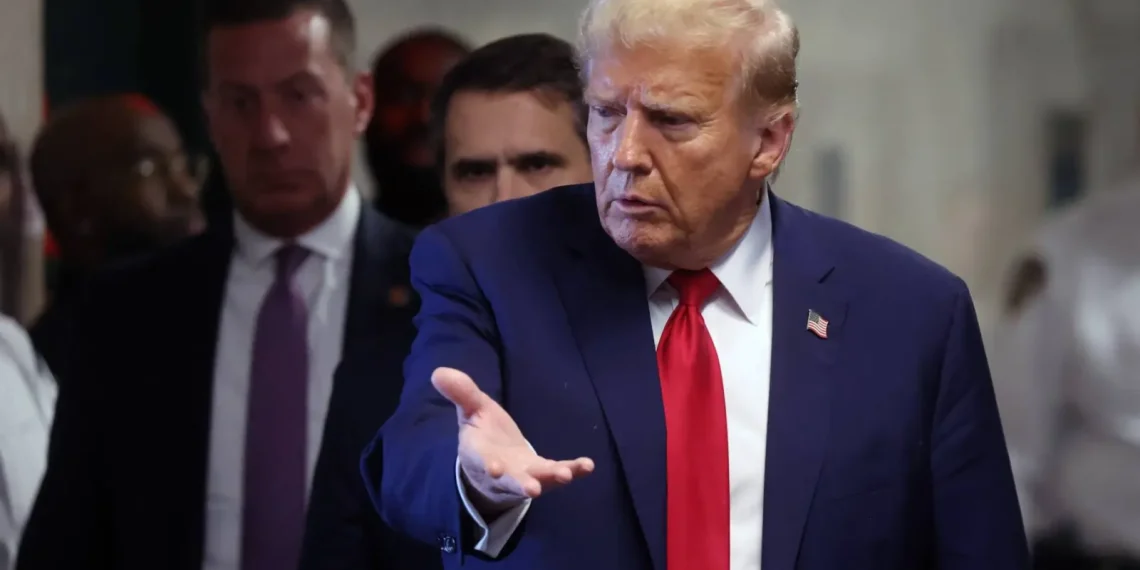Former President Donald Trump criticized recent campus protests across U.S. universities regarding Israel’s war in Gaza, denouncing them as “tremendous hate” during a media briefing following his New York trial testimony.
Trump compared these protests to the violent clashes in Charlottesville, Virginia, in 2017, downplaying the latter as “a little peanut” in comparison.
He blamed President Joe Biden for the campus demonstrations, suggesting Biden’s lack of understanding of the country’s issues.

While the Charlottesville rally resulted in a fatality and was marred by violent clashes between white nationalists and counter-protesters, the campus protests have remained mostly peaceful, albeit leading to widespread arrests.
Trump’s remarks drew criticism, particularly his attempt to equate the two events, which had starkly different levels of violence and social impact.
The protests on college campuses have intensified in recent days, mainly opposing Israel’s actions in Gaza, but have not escalated to the level of violence witnessed in Charlottesville.
University administrations have attempted to dismantle protest encampments, citing unauthorized gatherings, and have involved law enforcement, leading to numerous arrests.
Trump’s comments also touched on allegations of antisemitism during the protests, with some Republicans accusing university administrators of allowing Jewish students to be harassed.

However, activist groups have refuted claims of antisemitism, attributing any hateful rhetoric to infiltrators attempting to undermine their movement.
While Trump has previously denounced the violence in Charlottesville, his comparison of the events and his critique of Biden’s handling of the campus protests have stirred controversy.
With the November presidential election looming, Trump’s remarks signal a potential focus on social and political unrest as a campaign issue.





